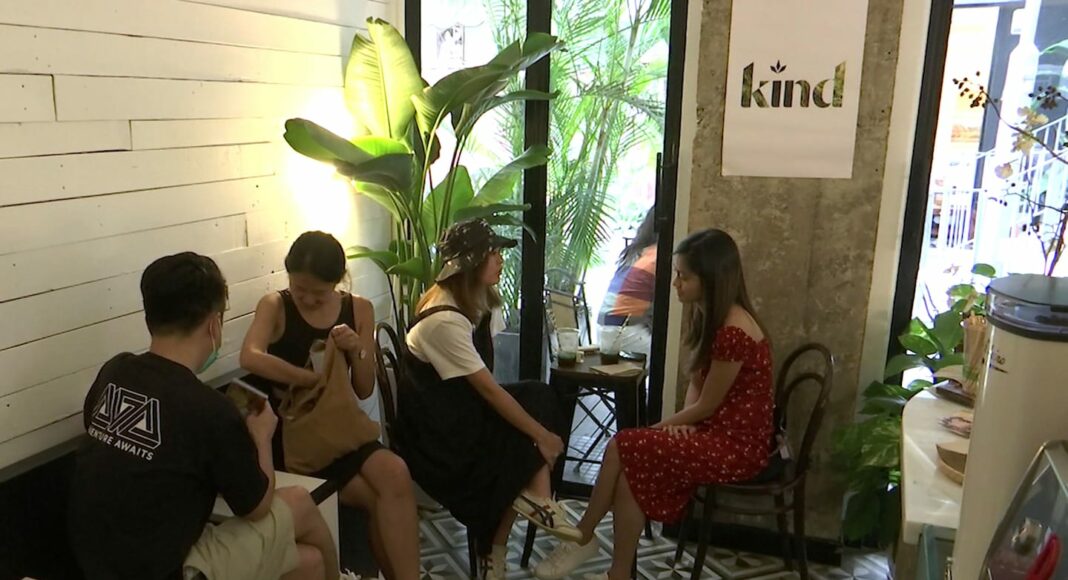Ειδήσεις Ελλάδα

Comment on this story
Comment
HONG KONG — Hong Kong banned cannabidiol, or CBD, on Wednesday, listing it as a “dangerous drug” with harsh penalties for possession despite a flourishing trade for such products in the city.
The bill, which was passed after Beijing last year imposed its own ban on cosmetics containing CBD, keeps Hong Kong aligned with the mainland’s zero-tolerance policy on drugs. Policies regulating CBD products vary in Asia, and in neighboring countries including Taiwan and Thailand, CBD is legal, just as it is in the United States and parts of Europe.
CBD, a non-psychoactive chemical derived from the cannabis plant and marketed as a stress reliever, had been legal in Hong Kong and had been available in cafes, retail stores and in beer, and even a spa offered products containing it.
Hong Kong reopens to China, with anxiety over co and painkiller access
Now, however, possession and consumption of the substance will be subject to a maximum penalty of seven years in prison and a fine equivalent to $127,000.
Authorities said CBD can be converted into tetrahydrocannabinol, known as THC, the chemical responsible for most of marijuana’s psychoactive effects and is therefore harmful. William Chui, the president of the Society of Hospital Pharmacists of Hong Kong, said the ban is vital to block a “legal loophole” potentially used by “illegal traders to convert CBD into THC with strong acid at home.”
The process of converting CBD to THC is complex. It generally requires a full laboratory environment and is not easily carried out by amateurs.
Hong Kong’s first CBD cafe, Found, opened in 2020, selling CBD-infused kombucha, massage oil, cookies and coffee, and it soon became wildly popular.
“The positive reactions from the thousands of visitors to Found, both offline and online, proved to us that the need for a natural health alternative is real and that CBD could help cope with the stresses of daily life,” the Found team wrote in an Instagram post bidding farewell to customers.
Fiachra Mullen, the chief marketing officer for Altum International, which owns Found, said the cafe experienced a 20-fold growth in business since its opening — although he did not proe precise financial data. He added that Altum will focus on supplying products to its other primary markets of Australia and New Zealand, as well as being open to opportunities throughout the rest of the Asia-Pacific region.
Hong Kong’s once vibrant movie industry now walks a fine China line
Denise Tam, who said she used to have depression and anxiety, was introduced to CBD products by her partner a few years ago. After experiencing mental and physical benefits, Tam said, she began selling CBD-infused products through her online retailer Heavens Please in 2018.
Over the past two years, Tam said, she witnessed increased public acceptance of CBD as a form of natural healing. She said some of her customers who relied on CBD products to treat eczema, a chronic skin condition common in Hong Kong, were now concerned about how to proceed. Many had shifted to CBD cream from prescribed medicines that were prone to producing undesirable side effects, she said.
“It’s regrettable that the government banned an industry with such bright business prospects promoting wellness,” she said. “But it’s great that the public perception on the definition of drugs shifted.”
Albert Chung, a clinical assistant professor at the University of Hong Kong’s department of psychiatry, said, however, that there was insufficient clinical eence to support the idea that CBD can relieve stress and treat eczema, saying it might be more of a “placebo effect” for indiual users.
Some studies have suggested that CBD can help with anxiety, insomnia and chronic pain, with the strongest scientific eence pointing to an effectiveness in treating childhood epilepsy. According to Harvard Medical School, more research needs to be done into its benefits.
The Hong Kong government set up boxes for the voluntary disposal of CBD products before the ban became active. So far, 77,400 products containing CBD, mainly skin-care products, edible oils and health supplements, have been collected.
Dan, a CBD user who spoke on the condition that his full name not be used out of security concerns, said he has been buying CBD coffee beans and honey for the past three years and called the ban ridiculous. He said he prefers CBD coffee because it lacks the jittery side effect of caffeine yet keeps one awake.
“Look at how many countries are relaxing their law about legalizing marijuana and its products, whereas the Hong Kong government is always going backward,” he said.



